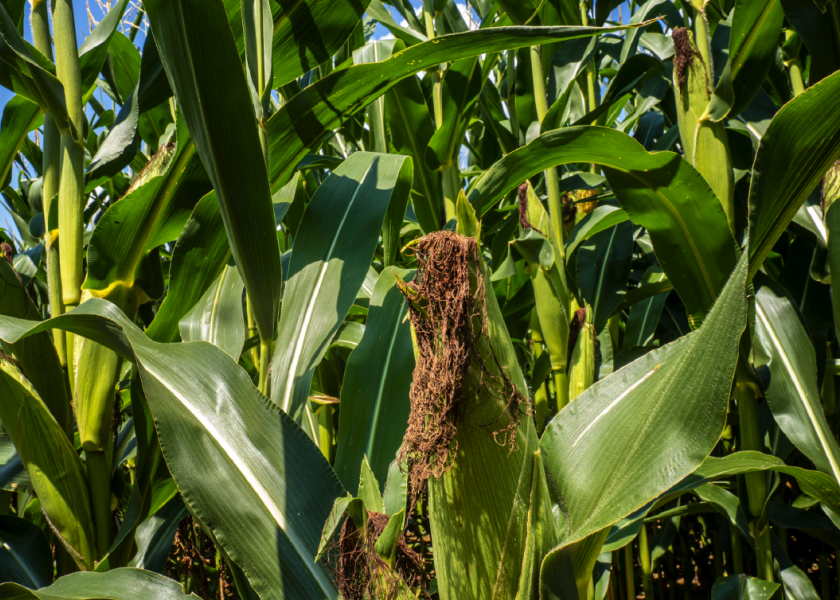USDA Offers Greater Protection and Flexibility With RMA’s Transitional and Organic Grower Assistance

Agriculture producers with Federal crop insurance for crops in transition to organic or a certified organic grain or feed crop are eligible to receive premium assistance from the U.S. Department of Agriculture (USDA) for the 2023 reinsurance year. The Transitional and Organic Grower Assistance (TOGA) Program, offered by USDA’s Risk Management Agency (RMA), reduces a producer’s overall crop insurance premium bills, and helps them continue to use organic agricultural systems.
RMA’s TOGA — a nationwide program — is part of USDA’s Organic Transition Initiative, a group of programs that build more and better markets for American growers and consumers and improve the resilience of the food supply chain. Through the Organic Transition Initiative, USDA will provide support in three main areas: mentoring and advice, direct farmer assistance, and organic market security.
“The demands on our agricultural producers and their subsequent needs are always growing and evolving, we want to make sure that the programs, policies, and benefits UDSA offers grow and evolve with our producers,” said RMA Administrator Marcia Bunger. “Organic farming is one of the fastest growing areas of agriculture in the country today and RMA’s Transitional and Organic Grower Assistance program is a great example of how we, at RMA, are supporting those producers interested in transitioning or are already involved in organics with beneficial and effective risk management options.”
Premium benefits for TOGA include:
- 10 percentage points of premium subsidy for all crops in transition,
- $5 per acre premium benefit for certified organic grain and feed crops, and
- 10 percentage points of premium subsidy for all Whole-Farm Revenue Protection (WFRP) policies covering any number of crops in transition to organic or crops with the certified organic practice. Producers who have additional individual crop insurance policies will also receive the applicable premium assistance on those policies.
Eligible organic grain and feed crops are: alfalfa seed, barley, buckwheat, canola, corn, cultivated wild rice, dry beans, dry peas, flax, forage production, forage seeding, fresh market sweet corn, grain sorghum, hybrid corn seed, hybrid popcorn seed, hybrid sorghum seed, hybrid sweet corn seed, millet, oats, crops insured under the Pasture, Rangeland, and Forage policy, peanuts, popcorn, rice, rye, safflower, sesame, silage sorghum, soybeans, sunflowers, sweet corn, triticale, and wheat.
Producers can receive both RMA’s TOGA and premium assistance from other premium subsidy programs. To be eligible for RMA’s TOGA, producers must purchase an additional coverage policy. If a producer purchases an underlying policy and an additional endorsement, RMA’s TOGA premium subsidy only applies to the underlying policy. There is no enrollment paperwork to apply for TOGA. Producers will automatically receive the premium assistance on the billing statements for the 2023 reinsurance year, which covers applicable policies with sales closing dates from July 1, 2022, to June 30, 2023. For most eligible crops, the 2023 reinsurance year is also the 2023 crop year.
Eligible producers who already have an insurance policy for the 2023 reinsurance year will still receive the TOGA premium subsidy. For example, for some potato, strawberry, and cabbage producers, the sales closing date for the 2023 reinsurance year has already passed. Since there is no enrollment paperwork, the premium assistance will still be automatically applied to eligible insurance policies.
USDA’s Support for Organic Producers
USDA unveiled the Organic Transition Initiative, which in addition to premium benefits on crop insurance also includes farmer-to-farmer mentoring and direct support through conservation financial assistance.
Meanwhile, USDA’s Farm Service Agency (FSA) is currently accepting applications for two programs that help organic producers and handlers with the cost of organic certification, along with other related expenses. Applications are due Oct. 31, 2022, for both the Organic and Transitional Education and Certification Program (OTECP) and Organic Certification Cost Share Program (OCCSP).
More Information
Producers can visit the TOGA webpage for more information, including frequently asked questions, and the TOGA fact sheet.
While TOGA automatically provides premium assistance to producers who insure their crop during the 2023 reinsurance year, RMA encourages producers to contact a crop insurance agent to discuss all crop insurance opportunities. A list of crop insurance agents is available at all USDA Service Centers and online at the RMA Agent Locator.
Crop insurance is sold and delivered solely through private crop insurance agents. A list of crop insurance agents is available at all USDA Service Centers and online at the RMA Agent Locator. Producers can learn more about crop insurance and the modern farm safety net at rma.usda.gov.
USDA touches the lives of all Americans each day in so many positive ways. Under the Biden-Harris administration, USDA is transforming America’s food system with a greater focus on more resilient local and regional food production, fairer markets for all producers, ensuring access to safe, healthy and nutritious food in all communities, building new markets and streams of income for farmers and producers using climate smart food and forestry practices, making historic investments in infrastructure and clean energy capabilities in rural America, and committing to equity across the Department by removing systemic barriers and building a workforce more representative of America. To learn more, visit usda.gov.







